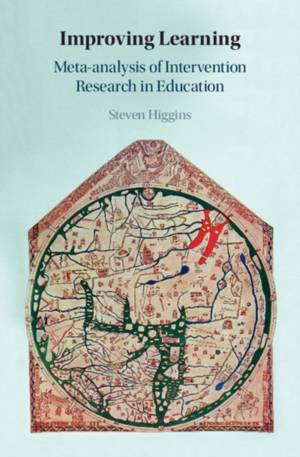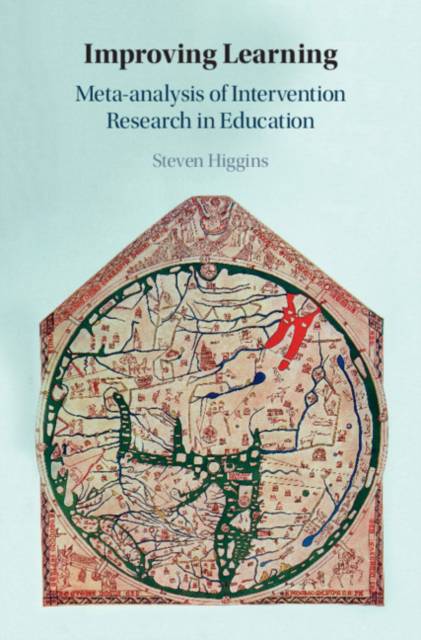
Bedankt voor het vertrouwen het afgelopen jaar! Om jou te bedanken bieden we GRATIS verzending (in België) aan op alles gedurende de hele maand januari.
- Afhalen na 1 uur in een winkel met voorraad
- In januari gratis thuislevering in België
- Ruim aanbod met 7 miljoen producten
Bedankt voor het vertrouwen het afgelopen jaar! Om jou te bedanken bieden we GRATIS verzending (in België) aan op alles gedurende de hele maand januari.
- Afhalen na 1 uur in een winkel met voorraad
- In januari gratis thuislevering in België
- Ruim aanbod met 7 miljoen producten
Zoeken
Improving Learning
Meta-analysis of Intervention Research in Education
Steven Higgins
Hardcover | Engels
€ 198,95
+ 397 punten
Uitvoering
Omschrijving
Improving Learning centres on the findings from different areas of education-focused research that support evidence-informed teaching and contextualises these results to optimise decision-making in schools. It also describes the origins and principles of meta-analysis in education and how this identifies the successes in improving learning in classrooms. Moreover, it explains the thinking behind the 'Teaching and Learning Toolkit' and similar approaches, which seek a big-picture overview of research findings. The advantages and disadvantages of this approach are explored with practical examples. Additionally, it identifies the issues in using research evidence in education and the steps that can be taken to improve this. It is not a manual on how to conduct a meta-analysis; instead the focus is on developing understanding of the approach in order to present its strengths and weaknesses. This understanding can advance critical engagement and effective use to improve educational outcomes for children and young people.
Specificaties
Betrokkenen
- Auteur(s):
- Uitgeverij:
Inhoud
- Aantal bladzijden:
- 262
- Taal:
- Engels
Eigenschappen
- Productcode (EAN):
- 9781107033320
- Verschijningsdatum:
- 11/10/2018
- Uitvoering:
- Hardcover
- Formaat:
- Genaaid
- Afmetingen:
- 239 mm x 152 mm
- Gewicht:
- 498 g

Alleen bij Standaard Boekhandel
+ 397 punten op je klantenkaart van Standaard Boekhandel
Beoordelingen
We publiceren alleen reviews die voldoen aan de voorwaarden voor reviews. Bekijk onze voorwaarden voor reviews.









